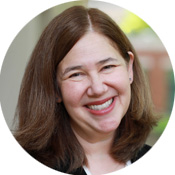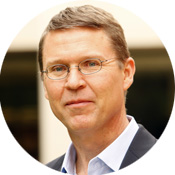Numerous studies have shown that when classroom participation depends on volunteers, male students speak more often. The solution, three University of Virginia professors explain in a new paper focused on law school classes — is to call on students systematically, and with care.
Written and conducted by UVA Law professors Molly Bishop Shadel and J.H. “Rip” Verkerke, and Associate Professor Sophie Trawalter of UVA’s Batten School of Leadership and Public Policy, the study suggests that instructors can employ various tactics in their classes to achieve more balanced levels of engagement. Gender differences in classroom participation are not related to confidence levels, as popular culture often suggests, but to curricular design, they argue.

The authors presented the results of their paper, “Gender Differences in Law School Classroom Participation: The Key Role of Social Context,” at the Virginia Law Review Online symposium “Interrogating Legal Pedagogy: Imagining a Better Way to Train Lawyers” in February.
“We care about all of this because speaking is power,” said Shadel, who teaches public speaking classes at the Law School. “That is true in our society; it is absolutely true in the practice of law. You have to be able to speak up in order to represent a client, in order to claim value.”

Verkerke, who has reengineered his own classrooms over the years to experiment with different teaching tools and kinds of engagement, said the studies’ results support the idea that a warm, welcoming environment in classes encourages students to speak.
“It’s also educationally sound,” he said. “The techniques that we're thinking about and advocating for can benefit both men and women.”
Shadel said the project was inspired nine years ago by two female law students who asked why women were not speaking as much as men during class.
“We also wanted to know the answer to that question,” Shadel said. “We wanted to know was this, in fact, happening; if so, why was it happening and whether there was anything that we as faculty and as law schools could do about it.”
The paper follows in the path of various “Speak Up” and “Speak Now” studies conducted at top law schools in the 2000s and 2010s. Typically conducted by female law students, investigators in those studies would sit in classrooms and note who talked and for how long. Those studies consistently found that men were speaking more often.
In their paper, Shadel, Trawalter and Verkerke undertook three separate studies. The first was observational, like the Speak Up studies.
“We also wanted to have an observational component in our project, but we had access to archival recordings of classes, which we thought were preferable because then we weren't coming in and potentially affecting class in real time,” Shadel said. “We expected that if you were choosing your professor, that might affect whether you were willing to speak or not, so we used required first-year classes, where the Law School had assigned you to a particular class.”
The study first transcribed and coded recordings from 107 class sessions of required first-year courses taught during a single academic year at UVA Law. On average, students in these classes were 45% women and 55% men.
“We found that the gender gap [in engagement] was driven largely by volunteered answers,” Shadel said. “We saw that when answering cold calls, women spoke just as much as men, and they also spoke just as well and their answers were equally on point. The gender gap appeared when students were allowed to volunteer whether or not to participate.”
The gender differences only appeared in lecture classes where volunteering was practiced; in those settings, male students spoke 62% of the time, and more than 30% longer. In classes featuring 30 or fewer students, the gap in participation vanished.
The second study in the authors’ paper surveyed four different graduating classes at four different points during law school — at orientation, after the first semester, before students’ second year and shortly before graduation.
“At orientation, men and women reported similar levels of belonging and were equally optimistic about how much they would be willing to speak in class,” Shadel said.
Once school started, however, the results showed that women reported speaking less than men after the first semester. But by graduation, men and women reported similar amounts of speaking. Verkerke noted this was not because women spoke more, but because men, citing lack of interest in the subject matter, were speaking less by the third year of law school.
In contrast, women reported that they were speaking less not for lack of interest, but often due to concerns about how their responses would be received.
“The concerns that women are expressing are not in any way unique to the law school classroom, and certainly not to UVA Law,” Verkerke said. “Instead, these differences are present in many settings. What we are seeing is just another instance of this phenomenon that has been observed in lots of other places, and gendered expectations are very, very common.”
The responses in the second study prompted the final inquiry — a deeper dive on concerns about speaking in class. Prior survey responses suggest that students were concerned about how their peers might react to their decision to speak in class. So the final survey asked explicitly about the level of “backlash” they thought women and men experienced for classroom participation. Conducted by surveying the Class of 2021, the study featured students who in their final year experienced both in-person and online classes, with some choosing to take classes entirely online during 2020-21. The authors acknowledge it was a time of “intense isolation” for many students. Men and women reported speaking in equal measures in their third year, but both groups said they were concerned about “backlash.” Men reported speaking slightly less during the pandemic.
The authors said the study offers a clear prescription for how to mold the classroom environment to encourage women and men to speak in equal measure.
“Having classes of 30 or fewer students will help,” Shadel said. “So will a systematic plan for calling on students or recognizing who gets to volunteer so that you don’t have just a few voices dominating the discussion.”
The Socratic method, commonly known as cold-calling in law schools, is also a systematic approach to requiring all students to participate. Through cold-calling, professors rotate whom they call on throughout the class, ensuring that women and men are called on equally. But the practice — which involves the professor sometimes pressing a student through a series of questions to help them start thinking like a lawyer — can also make students anxious and can feel adversarial.
“Students who disliked the Socratic method more spoke less in class,” the authors write. Notably, their data shows that “women do not like the Socratic method and like it significantly less than men do, across all time points.”
They suggest that a modified version of cold-calling — such as by letting students know they are on tap to speak in the next class — will yield better results.
“We also think it’s helpful to tell students that it is their job to volunteer,” Shadel added. “We think that takes away some of the stigma and the worry about backlash; we think it’s helpful to declare equal participation a goal of the class.”
Verkerke said the reasons smaller classes feature more parity could be because the stakes seem higher in larger classes.
“In a smaller, more intimate class, there tends to be a more supportive environment,” he said. “There’s more familiarity among students so they’re less likely to fear anonymous judgment.”
Currently at the Law School, the curriculum is roughly evenly split between lecture courses, small seminars and experiential courses, the latter of which generally feature the fewest students. Since the classes were recorded about 10 years ago, the number of large lecture courses has been reduced and the curriculum has shifted toward classes with fewer students. When the study started, women comprised about 45% of the first-year class. For the past two years they comprise more than 50% of the entering class.
Shadel followed up the paper with another co-authored with Professor Anne M. Coughlin that looks at issues raised by cold-calling in classes covering sensitive topics, like rape law. Coughlin talked about the difficulty of teaching such classes during an appearance on the UVA Law podcast “Common Law” in 2020.
“We think it's useful to offer students the option to pass if there is a talk about a topic about which they particularly do not want to speak,” Shadel said, describing the paper, “The Gender Participations Gap and the Politics of Pedagogy,” also published in the Virginia Law Review Online.
Shadel said she felt strongly that every student can learn to speak, and speak well, in class.
“You need to be able to take a deep breath and just do it,” she said. “And if we are making it hard to take that deep breath because we’re putting them in a group of 90 people and putting them on the spot only one time, then I don’t think we’re serving them well.”
Shadel, who is also a senior fellow of the school’s National Security Law Center, is the author of “Finding Your Voice in Law School: Mastering Classroom Cold Calls, Job Interviews, and Other Verbal Challenges” and co-author of “Tongue-Tied America: Reviving the Art of Verbal Persuasion.”
Verkerke is the T. Munford Boyd Professor of Law and director of the Program for Employment and Labor Law Studies at the Law School. He teaches contracts, employment law courses, and a seminar on conservation planning.
Coughlin, the Lewis F. Powell, Jr., Professor of Law, teaches criminal law, criminal procedure, feminist jurisprudence, and law and humanities. She is co-author of a casebook on criminal law.
Trawalter is an associate professor public policy and psychology at UVA. She studies phenomena related to social diversity, specifically how people navigate intergroup contact and intergroup contexts.
Founded in 1819, the University of Virginia School of Law is the second-oldest continuously operating law school in the nation. Consistently ranked among the top law schools, Virginia is a world-renowned training ground for distinguished lawyers and public servants, instilling in them a commitment to leadership, integrity and community service.


